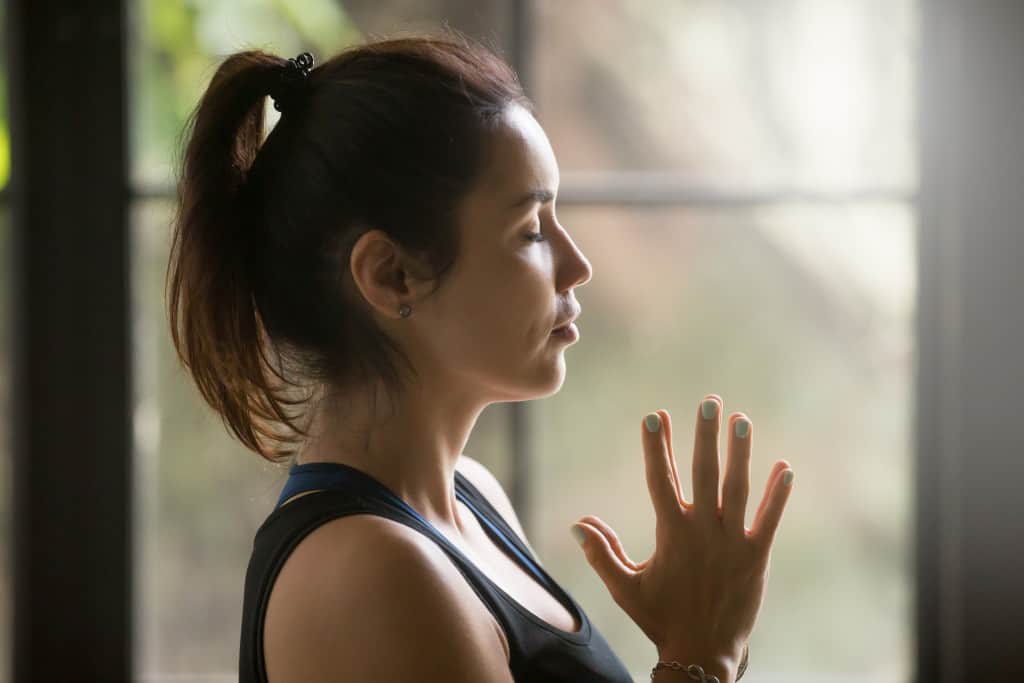It is becoming clear now. Suicide rates are up and the pandemic is fanning the flames, putting Americans at their worst. These times are certainly not for the faint of hearts. As the number of COVID-19 deaths rises to over 1 million all over the world and America with its over 200,000 death toll bearing the biggest brunt of that, misery and hopelessness is in the air. A study in JAMA (Journal of the American Medical Association) published recently calls the mix a “perfect storm” for mental stress and suicides.
Mindfulness and the “Art of Relaxing” may provide an answer to all the suffering. A quick look at how meditation has played a major role in putting sanity back into the lives of the mentally suffering should be enlightening. But the question is would it be enough to stop the bleeding. Already, voices from various sectors of America are trumpeting suicides may even be a far worse killer than COVID-19 itself.
Mindfulness in Religion
Picture the Lord Buddha in a meditative state hovering above the ground. If there was one religious deity associated with mindfulness it has to be Buddha. The story has it that it was under a large fig tree that the meditations of Prince Siddharta Gautama transformed him into the Buddha. And in time meditation has become at the core of Buddhism.
Indeed, mindfulness in the West can be traced to the East. Yoga, for one, is an Indian word. It is one (of six) of traditional schools of Hindu philosophy. Over time, yoga schools conquered the world through its roots in Hinduism and Buddhism. To note, Buddha is first and foremost a Hindu. His teachings carry tons of Hindu principles, minus the caste system, and the rituals of course.
Another glaring difference in both religions is Buddhism has done away with the sacred book Veda. Today, both Buddhism and Hinduism exists as distinct religions.
Seeing its positive effect, it didn’t take long for the West to strip yoga of its religious undertones. In the 1970s, a University of Massachusetts physician named Jon Kabat-Zinn developed what is now called a mindfulness program. He referred to this program as MBSR (Mindfulness-Based Stress Reduction) targeting patients with chronic pain. To propagate mindfulness, the professor founded the Center for Mindfulness at the same university.
Mindfulness as a Medical Treatment

By the looks of it, the massive benefits of mindfulness seem beyond reproach. As yoga schools all over America sprouted, mindfulness through meditation has been considered an effective tool to handle stress. Further, its ability to calm the mind has been a powerful instrument in improving brain functions.
This is evident in the use of mindfulness by medical practitioners to prevent suicidal tendencies in patients suffering from chronic pain brought about by debilitating physical conditions.
Even medical practitioners in America who treat mental illnesses have utilized mindfulness and yoga. Dr. Marsha Linehan’s DBT or Dialectical Behavior Therapy has used mindfulness as a core medical intervention technique in the treatment of chronically suicidal patients. To note, the success of this type of dialectical behavior therapy has manifested so well that it has been adapted to deal with a slew of other mental conditions.
By focusing thought on the present and the unfolding of various experience from one moment to another, mindfulness has done a good job of giving sick people hope. To a large degree, Kabat-Zinn gave a gift to the medical world. By stripping meditation of its religious roots and its metaphysical aspects, he has paved the way for mindfulness to function as a deterrent for suicides.
But the question is will mindfulness be enough? Psychotherapy denotes how suicidal thoughts and their related urges are a surprisingly common occurrence in Americans. Before COVID-19, suicides have claimed 1 out of 71 deaths in the country. Certainly, the rate has gone up these days. And with the medical community already spread thin by the coronavirus which to this date still doesn’t have a vaccine, it’s one tough act.




